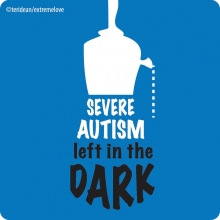The Link Between Acute Liver Failure And Bariatric Surgery
Tylenol, a no-no after gastric bypass? Maybe. Down the road, if confirmed in future large study -
Among patients with acetaminophen-induced acute liver failure (ALF), bariatric surgery was 25 times more common than in the general population.This is slightly terrifying to me, a nearly nine-year roux-en-y patient who left the bariatric surgery hospital taking acetaminophen melted in a one-ounce dose cup of warm water. I have depended on Tylenol caplets, capsules and liquids for nine years along with my re-routed-intestines husband who also depends on the stuff for aches and pains.
Those who DRINK alcohol BE WARNED.
Wikipedia -
Paracetamol INN (
/ˌpærəˈsiːtəmɒl/ or /ˌpærəˈsɛtəmɒl/), or acetaminophen USAN
i/əˌsiːtəˈmɪnəfɨn/, chemically named N-acetyl-p-aminophenol, is a widely used over-the-counter analgesic(pain reliever) and antipyretic (fever reducer). It is commonly used for the relief of headaches and other minor aches and pains and is a major ingredient in numerous cold and flu remedies. In combination with opioid analgesics, paracetamol can also be used in the management of more severe pain such as post-surgical pain and providing palliative care in advanced cancer patients.[4] The onset of analgesia is approximately 11 minutes after oral administration of paracetamol,[5] and its half-life is 1–4 hours. Though acetaminophen is used to treat inflammatory pain, it is not generally classified as an NSAID because it exhibits only weak anti-inflammatory activity.
While generally safe for use at recommended doses (1,000 mg per single dose and up to 4,000 mg per day for adults),[6] acute overdoses of paracetamol can cause potentially fatal liver damage and, in rare individuals, a normal dose can do the same; the risk may be heightened by chronic alcohol abuse, though it is lessened by contemporary alcohol consumption.Paracetamol toxicity is the foremost cause of acute liver failure in the Western world, and accounts for most drug overdoses in the United States, the United Kingdom, Australia and New Zealand
We depend on acetaminophen because We Have Been Trained Not To Touch NSAIDS! What then if acetaminophen is off the table for use? What do we use for over the counter pain medication? It's hard enough that pain medications after gastric bypass DO NOT WORK THE SAME and it is hard to find something that TAKES THE EDGE OFF OF any pain. Even just something as simple as menses and cyst pain is not touched by NSAIDS (not that I would know, I promise... a little) or acetaminophen.
What do we do when there are no options?
Sigh.
American Association for the Study of Liver Diseases (AASLD)
Among patients with acetaminophen-induced acute liver failure (ALF), bariatric surgery was 25 times more common than in the general population.
Researchers at California Pacific Medical Center (CPMC) reported an alarming rate of bariatric surgery among patients with ALF from acetaminophen poisoning. They studied 101 patients with ALF between 2009 and 2011, of whom 54 had acetaminophen-induced ALF. Of those 54 patients 9 – or 16.7 percent – had prior bariatric surgery, as compared to none of the 47 patients with ALF from other causes. The prevalence of bariatric surgery in the American population is approximately 0.66 percent.
When asked about the large percentage of patients with acetaminophen-induced ALF who had bariatric surgery, Dr. Edward Holt said, "While it is possible that this percentage could be lower in a study with a larger sample size, it is not likely that a difference this large would disappear. To the best of our knowledge, this is the first report of bariatric surgery in acetaminophen-induced ALF."
In the United States more than one million adults between the ages of 18 and 75 years have had bariatric surgery. "If these patients are predisposed to liver injury from acetaminophen, then clinical management and drug advertising should immediately be updated to reflect this risk," said Dr. Holt.
When asked about future directions of research in this area, Dr. Holt said "We would like see these findings reproduced in a larger, multi-center study, and we want to look at the pharmacokinetics of acetaminophen in patients with and without bariatric surgery."
The CPMC researchers called attention to previously reported associations between bariatric surgery and suicide, and between alcohol abuse and acetaminophen-induced ALF. They showed that patients in their study with prior bariatric surgery and acetaminophen-induced ALF did not have higher rates of depression, alcohol abuse, or intent to cause self-harm when compared to patients with other causes of ALF.
The authors concluded that prior bariatric surgery may place patients at higher risk for acetaminophen poisoning, similar to the increased risk seen in patients who chronically abuse alcohol. "Patients with chronic alcohol abuse who take 4 grams of acetaminophen each day can inadvertently poison themselves and even develop acetaminophen-induced ALF. Based on our results, we suspect that bariatric surgery may also render patients more susceptible to acetaminophen-induced liver injury. However, before an official warning is issued further research should be conducted." concluded Dr. Holt.
| CONTROL ID: 1423621 |
| PRESENTATION TYPE: Oral or Poster |
| CURRENT CATEGORY: Acute Liver Failure and Artificial Liver Support |
| CURRENT DESCRIPTORS: A01. Acute Liver Failure and Artificial Liver Support |
| TITLE: Prior Bariatric Surgery Increases the Risk of Acute Liver Failure from AcetaminophenPoisoning |
| AUTHORS (FIRST NAME, LAST NAME): Edward W. Holt1, Timothy J. Davern1 |
| Institutional Author(s): |
| INSTITUTIONS (ALL): 1. Department of Transplantation, Division of Hepatology, California Pacific Medical Center, San Francisco, CA, United States. |
|
ABSTRACT BODY: Background: Bariatric surgery (BS) is an effective therapy for morbid obesity, a major public health problem in the U.S. Previous reports suggest that following BS, higher peak serum concentrations of ethanol (ETOH) after a challenge, and a higher rate of suicide compared to matched controls are observed. We hypothesized that prior BS might also predispose patients to an increased risk of acetaminophen (APAP)-related liver injury. This novel finding, if confirmed in a larger multi-center cohort, should lead to specific warnings for APAP use in bariatric patients similar to those already in place for patients who drink excessive alcohol. |
|
|
Share on Facebook
Perhaps another reason for people to consider VSG...
Thanks for sharing. I have several friends who take a lot of acetaminophen who should see this.
Lora
14 years out; 190 pounds lost, 165 pound loss maintained
You don't drown by falling in the water. You drown by staying there.
![]()
Tylenol has never helped me no matter what kind of pain I've had. Sucks.
HW: 274 | SW: 232 | CW: 137 | Goal: 145 (ticker includes a 42 pound loss pre-op) | Height: 5'4"
M1: -24 (205) | M2: -14 (191) | M3: -11 (180) | M4: -7 (173) | M5: -7 (166) | M6: -8 (158) | M7: -11 (147) | M8: -2 (145) | M9: -3 (142) | M10: -2 (140) | M11: -4 (136) | M12: -2 (134) | M13: -0 (134) | M14: -3 (131) | M15: +4 (135) | M16: +2 (137)
Tylenol is metabolized in the liver, as a drug it is very toxic beyond a certain daily dose (and your liver's ability to process it). I would possibly believe that a increased amount is absorbed due to lack of stomach acids.
Look up the molecular structure of tylenol and Phenacetin (Removed off the market due to renal toxicity). Phentacin is metabolized into tylenol in a first pass through the liver and tylenol, without being modified by the liver is likely toxic. Once your body cannot metabolize anymore you start on your liver. Watch how much total tylenol you take on a day to day basis it used to be 3grams max ( but i understand that has been lowered?)
Either way, I will, as always try to reserve medications for only when I feel I REALLY need it. I rarely use acetaminophen other than for a fever. Im very fortunate I do not have any serious aches and pains!
on 11/12/12 8:20 am
Thank you for your posting. I'm going to talk to my surgeon about this in January at my next visit. I had to go off of my higher dose of Meloxicam prior to surgery. It was a wonderful drug for my chronic back, foot, neck, and arthritis issues. I've been using half doses of Vicodin 5/500's once or twice a day to take the edge off. The surgery did help considerably with the nerve/bone issues in my foot but my back is a bear still. Surgeon said only the RNY would help the back because more weight needs to be gone to relieve the pain. I still have about 35 lbs to go but I strongly feel that I'll need long term pain management (mild-moderate) and don't ever want to make the mistake of getting too much acetaminophen. Luckily, I'm a non-drinker.
Basic pharmacology being part of my degree a gazillion years ago, I would NEVER take Tylenol on a daily basis - none of this information is new and anyone needing regular pain relief should seriously consider what surgery they propose having.
If we already have an RNY, and we need to manage our pain on a daily basis, we need to be doing it in a much safer way than daily Tylenol!!!
Proud Feminist, Atheist, LGBT friend, and Democratic Socialist








